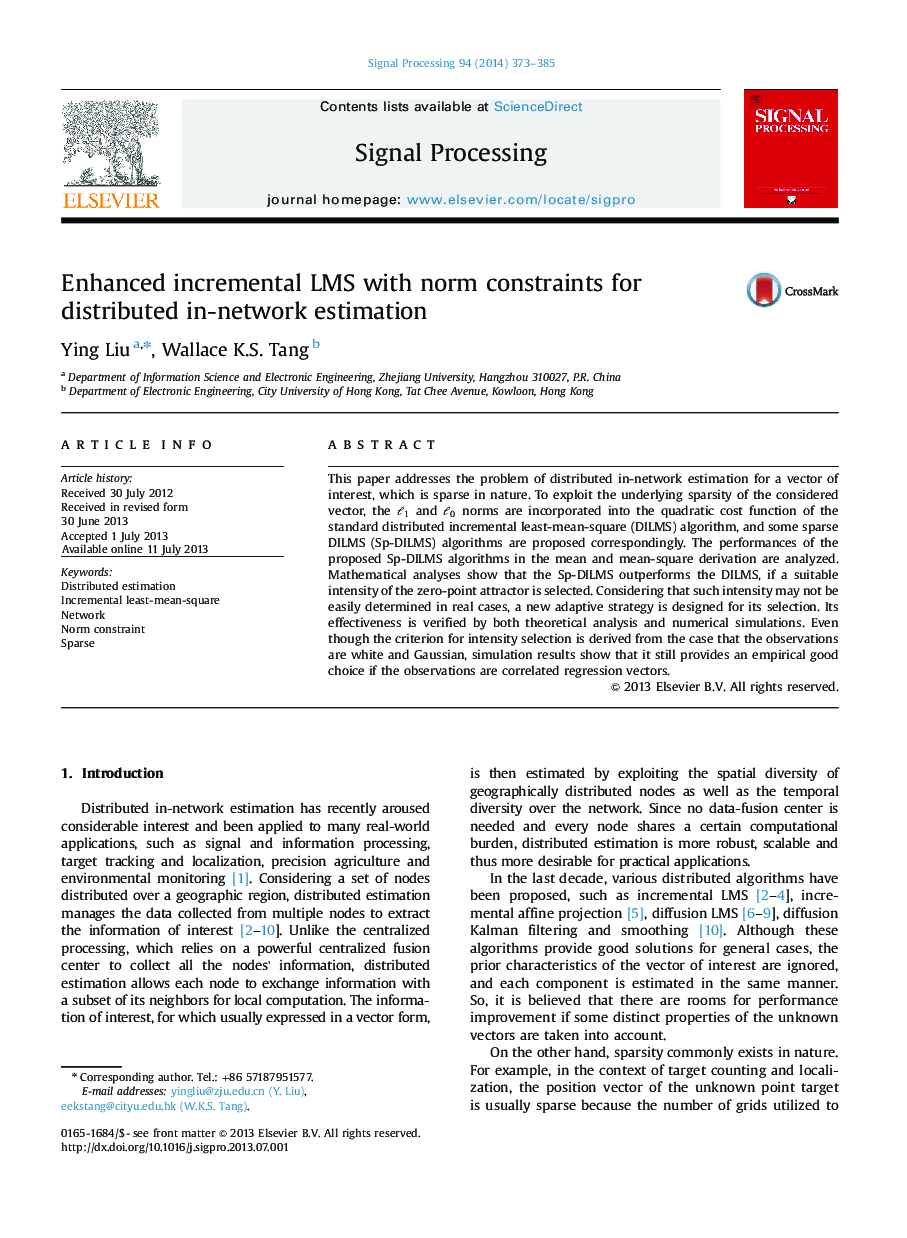| Article ID | Journal | Published Year | Pages | File Type |
|---|---|---|---|---|
| 566472 | Signal Processing | 2014 | 13 Pages |
•We propose some distributed incremental LMS algorithms with norm constraints for sparse vector estimation.•The mean and mean-square performances of the proposed algorithms are analyzed.•Studies show that sparse LMS outperforms the conventional LMS if a suitable intensity of the zero-point attractor is selected.•An adaptive strategy is designed for selecting the intensity of the zero-point attractor.•Theoretical studies and simulations show that the sparse LMS outperforms the conventional LMS if the vector of interest is sparse.
This paper addresses the problem of distributed in-network estimation for a vector of interest, which is sparse in nature. To exploit the underlying sparsity of the considered vector, the ℓ1ℓ1 and ℓ0ℓ0 norms are incorporated into the quadratic cost function of the standard distributed incremental least-mean-square (DILMS) algorithm, and some sparse DILMS (Sp-DILMS) algorithms are proposed correspondingly. The performances of the proposed Sp-DILMS algorithms in the mean and mean-square derivation are analyzed. Mathematical analyses show that the Sp-DILMS outperforms the DILMS, if a suitable intensity of the zero-point attractor is selected. Considering that such intensity may not be easily determined in real cases, a new adaptive strategy is designed for its selection. Its effectiveness is verified by both theoretical analysis and numerical simulations. Even though the criterion for intensity selection is derived from the case that the observations are white and Gaussian, simulation results show that it still provides an empirical good choice if the observations are correlated regression vectors.
